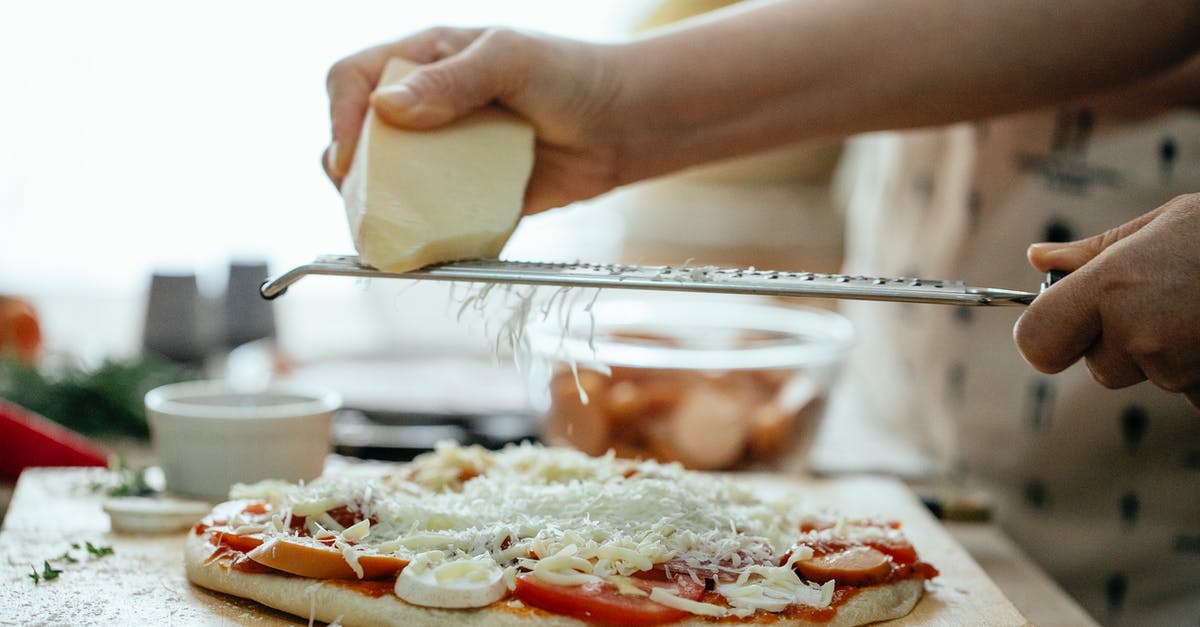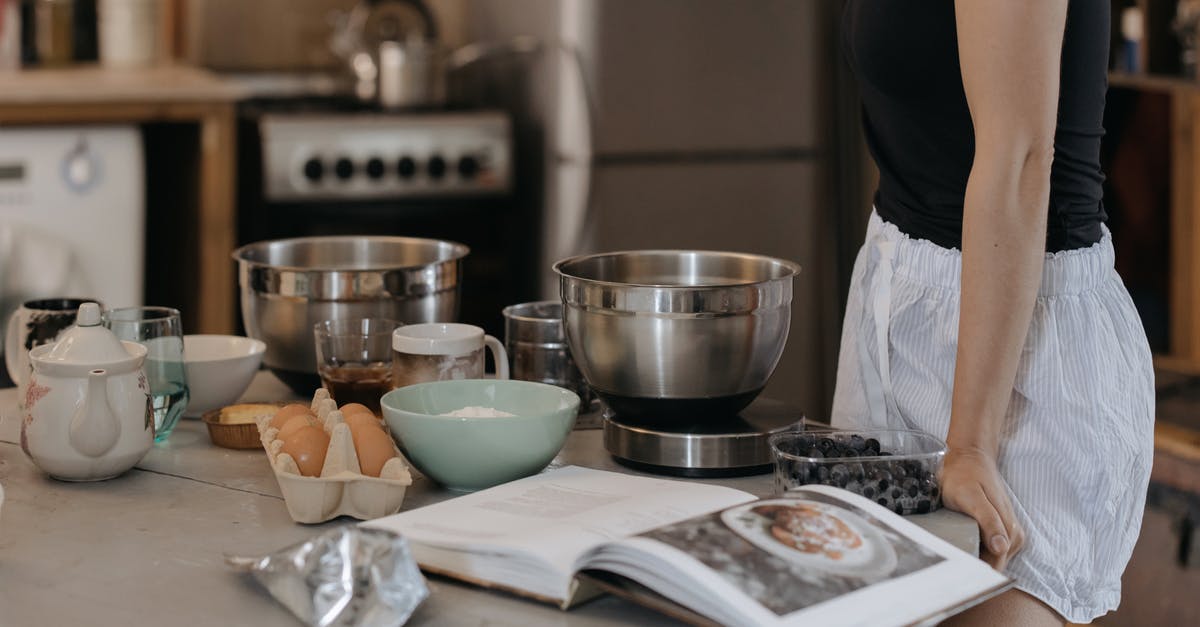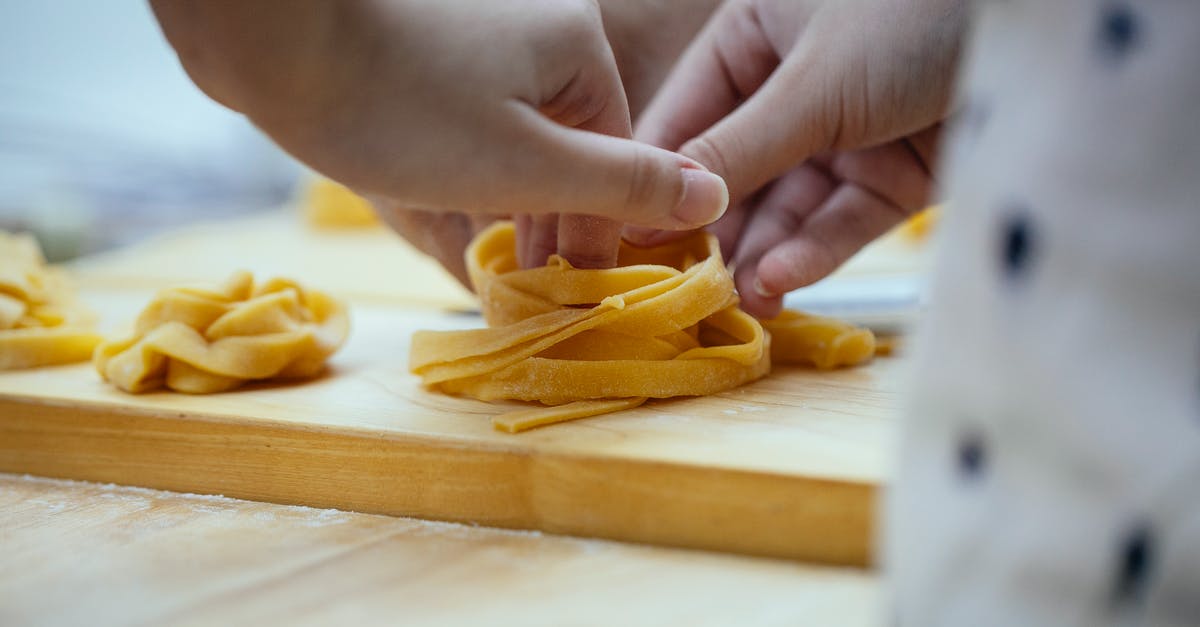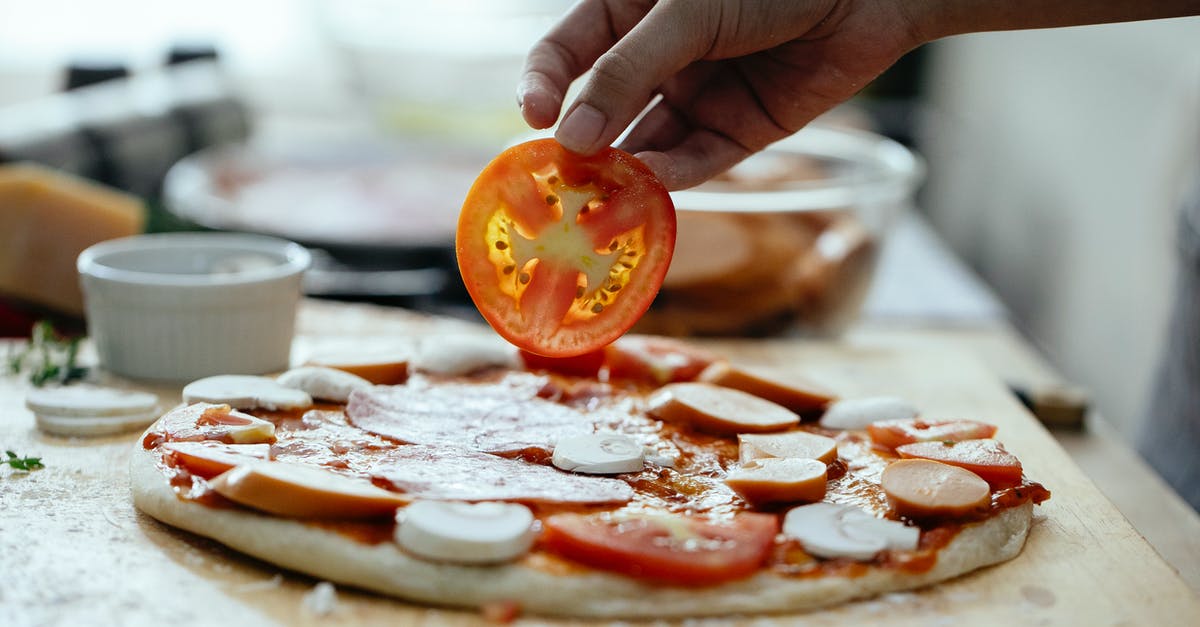How do chefs come up with recipes for good food?

I have been cooking for some time now, but I have always been a sort of recipe follower. I know the basic composition of flavor components (sweet, sour, umami,...) but I have never been able to come up with something new, nor have I really made an effort attempting it.
I wonder what kind of procedure professional chefs follow when trying to cook something new or trying to update a dish.
Is there really an established science about flavor out there to follow?
Best Answer
I am not a professional chef, but I have worked in restaurant kitchens, and have been lucky enough to befriend some enormously talented people - line cooks, pastry chefs, culinary school graduates, and executive chefs. I'm basing this mostly on my observations of the way they work, and the conversations I've had with them. Although I never sat down and asked them directly how they came up with dishes, I have sometimes served as a sounding board for their ideas, offered suggestions, and seen menus-in-progress, which I think provide some valuable insight.
Keep in mind that every chef is a bit different. There are many sources of inspiration that a chef can use when creating a dish. They can think back to their childhood, look at trends among their peers and in the industry as a whole, look to many different culinary traditions, and so on. The degree to which each person does this is unique, and it informs a large part of what we'd call their "style". But, in general, I think there are some fairly universal processes.
There are really two distinct things happening when coming up with a dish: ideation and execution.
By ideation, I mean the process of coming up with an initial idea for a dish. This is when the chef has pretty much a blank slate (though often times, it's in the context of coming up with a specific type of dish; an appetizer, or a meat course) and they're thinking about possibilities for what they want to do. This can take a lot of different forms, and I've heard chefs describe how their ideas first came to them in a lot of different ways. It can be:
- A "lightbulb moment", where the concept spontaneously and suddenly appears in their mind, oftentimes when they're working on something else.
- Thinking about multiple dishes and trying to re-match "elements" or components of each dish with one another. For instance, taking the flavors of a ceasar salad (anchovy, egg, parmesan) and combining them with the presentation of a deviled egg. [I should note that this is my own example, which is why it isn't a great one. Like I said: I'm not a professional.]
- Being inspired by a single ingredient, and finding a few other flavors that complement or contrast that core flavor. For example, complementing a sweet corn soup with snow crab meat and a melted paprika butter. [A much better example, from an actual chef!]
- Taking a dish (from any number of sources) and deliberately trying to do something different with a single element, component, or flavor. For example, taking tacos (which often use Latin American flavors) and instead using a southeastern Asian flavor palette (fish sauce, cilantro, ginger, garlic).
Notice that one of these approaches is not sitting down with a dictionary of flavors and trying to assemble combinations that "scientifically" go together somehow. Good chefs have an intuitive feel for what flavors go well together, a kind of sensory memory, that is not just informed by flavor pairings but also by culinary traditions. The list of potential flavor combinations is close to infinite, but people tend to gravitate towards the familiar in their food. To some degree, diners want comfort and foods or flavors they recognize. I'd argue that this is true even in molecular gastronomy, where the point is often to present unfamiliar flavors in a very mundane, familiar presentation, or the reverse - take known and loved flavors, and present them in a seemingly bizarre way.
Chefs know this from their training and experience, and they don't try to draw out flavor combinations from a blank starting point. Instead, they utilize pairings that they just "know" work well, or that they love. Sometimes they'll swap out a single component from that pairing for something similar, but in general they're not trying to invent totally new, never-done-before combinations of flavor.
For this reason, a lot of chefs I've known have truly absurd collections of cookbooks and recipes. One head chef that I worked with for years estimated that he had over 1,000 books (and he mentioned this as he was browsing online, making a wishlist of more that he wanted). The reason is not because they're cooking these dishes as written - instead, they're drawing on them for initial inspiration. They're reading the recipe as written and thinking about how they want to utilize the particular method, what different components they can swap out, or how they could adapt the same dish to a totally different method of cooking.
Once the initial idea takes shape, it's time for execution. This is typically a very iterative process, meaning that it involves cooking the dish, tasting it, and seeking feedback. That feedback could come from themselves (by thinking about what they'd change or do better) but it often comes from others. This can happen with specific elements of the dish cooked separately, or the entire assemblage of them. Chefs usually seem to taste individual pieces as they go until they're happy; then they put everything together, taste the combination, and then try it out on others, but that varies depending on their style and how comfortable they are with what they're creating.
In a healthy team environment, there's usually a lot of collaboration. Chefs will talk through their partly-completed ideas out loud and share flashes of inspiration they've had for one core element or a dish they want to do. They might cook a small batch of something and ask everyone to taste. One of my favorite parts of creating a new menu were workshop sessions with multiple chefs all bouncing ideas off one another, cooking their own dishes, then tasting each as a crew and offering suggestions (or sometimes coming up with totally new ideas by saying "why couldn't we do that like this instead?"). Feedback can also come from front-of-house staff or from guests; the first week or so is a very important time for a new menu because people are seeing things for the first time, and you can get their reactions (if you're humble enough to ask).
This is often the part where chefs will sit down with a "flavor bible" and look for flavors that go well with what's already in the dish. They may feel that something is missing, and try to find something that will complement other components. Or perhaps they want to use a different flavor from what's already present, and are looking for a replacement that will work well with other ingredients. Or, they have one particular ingredient that they're happy with, but it's out of season, or too expensive, and they're trying to find a reasonable substitute.
Good chefs will also typically be thinking about plating at this point, and how the dish should be arranged and presented. I often hear that "we eat with our eyes", although I think it's more accurate to say that plating is sort of an introduction to the dish. In order for something to be really, really good, it can't just taste excellent. It has to sound enticing on the menu, and it has to look (and smell) beautiful when it arrives - all of that contributes to anticipation of the flavor.
There's one more thing that really good, experienced chefs do well which goes beyond coming up with any single dish. Assembling a menu is really an impressive skill that I think goes under-appreciated. It involves repeating all of the above, not just for a single dish but for an entire array of them, all of which have to individually sound enticing and balance one another. Creating an entire menu involves balancing a ridiculous number of factors, like:
- The style of the restaurant (or venue, for special events)
- The season (what ingredients are fresh, readily available; and just as important, what isn't)
- The balance they want to strike between different types of dishes (appetizers, main courses, pastas, sandwiches, desserts, sides, etc.)
- The balance they want to strike between different offerings (do they have something vegetarian-friendly? A fish option? A meat option? Items for adventurous diners? Items for the non-adventurous?)
- The general price point they need to consider for their target audience
- The variety of specific ingredients (avoiding the same flavor combinations being used in everything - or perhaps, being able to re-use the same components in multiple places for efficiency)
It's really pretty insane, and this in my mind is the defining line between a "chef" and an "executive chef". I'm always impressed by the skill involved in not just coming up with a list of ideas, but bashing them into something that feels balanced, sounds consistently delicious, and expresses their unique style - and then in turn, having each one of those dishes executed well! Home cooks can often come up with great dishes, and fantastic, original takes on classics, but you have to be a real pro to come up with 20-30 of them that fit into a cohesive whole. So, the next time you sit down at a restaurant, scan the menu, and think "this all sounds really amazing", stop and give the chef a silent cheer.
In short? It's really, really complicated. There are no hard and fast rules. It's not a procedure or a science; it's very much an art. Chefs spend their entire careers learning how to do this well, and there is always the opportunity to get better.
Pictures about "How do chefs come up with recipes for good food?"



Quick Answer about "How do chefs come up with recipes for good food?"
Good chefs have an intuitive feel for what flavors go well together, a kind of sensory memory, that is not just informed by flavor pairings but also by culinary traditions. The list of potential flavor combinations is close to infinite, but people tend to gravitate towards the familiar in their food.How do chefs make their own recipes?
Chef recipes are created from a fusion of flavors and tastes that a head chef decides to try together in a meal. Gourmet cooking is all about mixing together unique ingredients in an interesting way and also presenting it in an interesting way that catches the eye.How do chefs make food taste good?
How do people come up with recipe?
Recipe Writing BasicsHow do chefs find inspiration for new dishes?
4 Ways That All Chefs Find Inspiration- Don't force it. When you are trying to think of some new dish to cook, it can be easy to force yourself into coming up with a set number of ideas. ...
- Take a look around. ...
- Find a springboard. ...
- Recognize your role.
50 Cooking Tips With Gordon Ramsay | Part One
More answers regarding how do chefs come up with recipes for good food?
Answer 2
I am by no means a professional chef, and I don't even know one, but I think the same rules apply.
I do the cooking at home as I totally love that. My wife always say that I missed my calling. I almost never work from a recipe. Creating good food, and great tasting food for that matter depens on your knowlegde of your ingredients and how adventurous you are.
Firstly, you must have a basic idea of what you want to achieve. What flavor profile are you looking for, what combination of herbs and spices will best suite my needs. Also, decide who is going to be the main star and work around that.
Secondly, start out very simple. Don't over-complicate. With proper salt, peper and garlic, you are in most cases 50% there. The use of other herbs and spices and/or ingredient should compliment and enhance the flavor of your main ingredient, and not alter its taste.
Thirdly, use fresh products if available. Fresh produce just have a beter taste
Be creative. Sit and write down a basic idea/recipe of what you think might work. Test it out in a small batch, and always taste while you go along. If you need to change an ingerdient or the amount of that specific ingredient, write it down. Work methodically, according to what you have written down, and if there is change, immediately write it down.
Answer 3
I know this question was opened 4 years ago, and since I work in professional kitchens for 6 years. I have worked with talented line cooks, home cooks, pastry cooks and chefs, sous chefs and foodies who love food as inspirations. Of course, food trends may also map out the creativity of creating new recipes. Today in 2018, more people are aware of exotic ingredients are becoming more mainstream than 10 years ago.
I have learn as I taste a new soup, dish or anything different on the menu. I would try it, if I liked it - I would even ask the chef how she or he cooks it, and what's in it. All ingredients are fresh, are in season, and sometimes they would add an ingredient to enhance the flavors like fresh herbs and put less dried herbs. It is a matter of food sensory experiences like taste, smell and having a "light bulb" moment and the adage that "it if taste great, it goes well together". Sometimes I discovered a soup is on the menu, and then found out that this recipe is coming from a sandwich. It means that ingredients that came from another form of the original recipe can be transformed into a new and more improved recipe.
I work as a garde manger which gives me the ability to make sauces, dressings, and new forms of salads with vegetables, fruits, and some proteins.
I even follow some guidelines from cooking techniques and some baking too. I follow a 3- 5 ingredients recipe then enhance it more using the "The Flavor Bible" by Karen Page on which ingredients go well together; but I also talk to customers on what kind of salads they like to appear on their menu, and see if there is a food trend going on, so I can make few composed salads they like to eat during service.
It just really depends but having an open mind, the capability to do it and making a recipe that is easy to make, prepare and cook will expand your culinary knowledge, applying proper techniques and technical know-how, and knowledge of flavors are keys of making recipes and menu development.
Answer 4
I would suggest that it is not that complicated...not easy, but not that complicated. It begins and ends with technique. Chef's and cooks learn and master cooking techniques. The tools and processes of the trade...how to cook things...frequently, from a particular cultural perspective, but I think there is more similarity here, rather than huge differences in how to cook stuff. Then, they learn about flavor..what goes well together...again, cultural influences abound. Finally, they use ingredients that are in season and/or as fresh as possible. They look for flavors that go well together...apply proper technique...and then have the beginnings of creating a new dish.
Some would say that there is a science of how to pair flavors. See: https://www.foodpairing.com/en/home
Others rely on the adage: "If it grows together, it goes together"
Others, use local ingredients to riff on food concepts from distant places....but I think it all comes back to cooking technique and knowledge of flavor.
Sources: Stack Exchange - This article follows the attribution requirements of Stack Exchange and is licensed under CC BY-SA 3.0.
Images: Katerina Holmes, cottonbro, Katerina Holmes, Katerina Holmes
